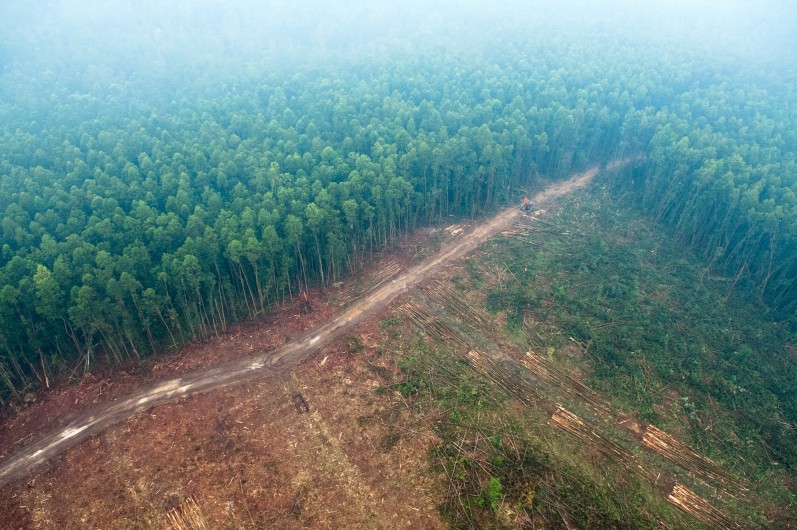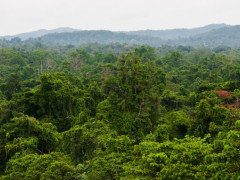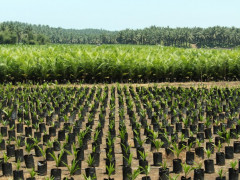Woman Fighting Oppression: Esther Haluk
By Pantau GambutThird Annual JMGR Conference: Protect Peat to Improve Community Welfare

The Third Annual Riau Peat Community Network (JMGR) Congress was held to support policy development to provide a better life for the communities surrounding peatlands. The Congress was attended by 300 people from various districts and community backgrounds. Many defended peat communities’ right to transparency regarding peat restoration activities.
The Riau Peat Community Network (JMGR) – the first and largest peat community organization in Riau – held its third congress under the theme “Protect Peat, Save Life; Maintain Peat, Community Prospers”. The event was officially commenced by Head of the Riau Peat Restoration Agency (BRG) Nazir Foead and the Governor of Riau, who was represented by Head of the Riau Environment and Forestry Agency Yulwiriati Moesa.
Over 300 people from six districts, including NGO representatives and university students, attended the congress to support policy development to provide a better life for the communities surrounding peatlands, advocate for community rights, and enhance transparency and access to information through multi-stakeholder cooperation.
The Third Congress was a big event, serving as a forum for Riau peatland communities and government partners to improve peat management. JMGR membership previously spanned six districts: Pelalawan, Indragiri Hilir, Indragiri Hulu, Siak, Kepulauan Meranti, and Rokan Hilir. By the time the Congress was held from 6-8 November 2017, JMGR membership had increased to include Bengkalis district, consisting of two sub-districts and ten villages.
During the Congress, speakers discussed many issues related to forests and peatlands in Riau. One topic was the degradation of Riau forests and peatlands due to land conversion, subsidence, abrasion, and fires.
Company land conversions became a hot topic, with some attendees demanding the revocation of permits from companies utilizing peatlands. Unfortunately, this could not be executed easily, since a company’s permit can only be revoked in extenuating circumstances.
Consequently, BRG has sought to involve communities in every aspect of peatland restoration. The Peat Care Village program was developed to channel communities’ aspirations and suggestions for the implementation of restoration activities.
Another topic at the Congress was the development of a just and sustainable community-based peatland protection and management pledge. Josefhine Chitra, representing Pantau Gambut, took part in one session with WALHI Riau, represented by Fandy and public figure Abdul Manan. The three of them explained the importance of community involvement and local knowledge in peatland restoration and management. Spirited conversation ensued over improving local economies, concession–village boundary conflicts, and the lack of a direct role for the Riau provincial government. Pantau Gambut continued to encourage communities to actively monitor government pledges to protect and restore peatlands.
A more comprehensive approach is required to ensure effective peatland management. Following the Congress, support from central and regional government agencies is expected to synergize with JMGR work programs for the next four years, improving the quality of life in peat communities.



